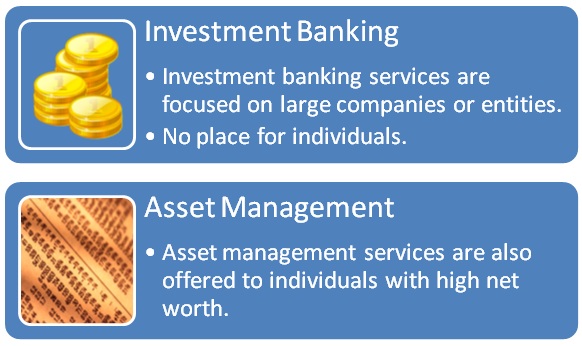
Researchers use a series question to determine how uncertain people are about future Social Security benefits. There have been many options, including objective and subjective measures of the likelihood that benefits will be received. Researchers have also looked at the proportion of people who feel that the program is not going to provide benefits in comparison to those who believe it will.
The most obvious and simple way to measure the degree of uncertainty is to ask how likely it is that a person would receive a certain amount of Social Security. Research has shown that people between the ages of 30 and 70 have a 40% chance of receiving benefits, while a large number of people think they won't get any benefits. A large number of people think that the program will end in the future.
Apart from the question whether the program will still be available to offer benefits, many questions have been raised about whether the government would increase taxes necessary to cover expenses. In particular, the survey showed that 37% (of White workers) expected to be denied Social Security benefits.

Similarly, the University of Wisconsin's Survey of Economic Expectations, a study conducted from 1999 to 2002, asked respondents about their expectations of the future. Surprisingly, the proportion of respondents who claimed that Social Security benefits would be available at 70 fell from 10 percent to 17 percent for respondents under 30, while the percentage who said it wouldn't happen rose from 18% to 26 percent.
A few additional questions were asked to explore the extent of subjectivity involved in determining whether a person will be eligible for the full benefits. A hypothetical scenario was presented to the respondents. This allowed them to offer advice to a hypothetical 60-year old on how much lump sums would be acceptable. While the median amount people were willing to accept was $4,750, the average was $16,250.
Bernheim's 1987 study used a similar approach in exploring the degree of subjectivity. He found that retirement-aged people underestimated the value of their future benefits and that middle-aged people also have high levels of subjectivity.
Delavande-Rohwedder (2011) performed research that determined the level of subjectivity needed to determine whether a person is eligible for Social Security. They calculated the difference between minimum benefits with a 25% chance of being received, and minimum benefits with a 75 percent likelihood of being received.

Other studies on the subject have also been done. A study by the Office of Disability Policy revealed that respondents who believed Social Security would discontinue offering benefits were also more likely think that a lump sum of 100 USD per month would be sufficient for their financial needs. Norr (2017) found another reason for pessimistic outlooks on the future Social Security. It was negative bias.
FAQ
How do wealthy people earn passive income through investing?
If you're trying to create money online, there are two ways to go about it. One way is to produce great products (or services) for which people love and pay. This is what we call "earning money".
The second way is to find a way to provide value to others without spending time creating products. This is called "passive" income.
Let's suppose you have an app company. Your job involves developing apps. You decide to make them available for free, instead of selling them to users. That's a great business model because now you don't depend on paying users. Instead, your advertising revenue will be your main source.
Customers may be charged monthly fees in order to sustain your business while you are building it.
This is how most successful internet entrepreneurs earn money today. They are more focused on providing value than creating stuff.
How much debt are you allowed to take on?
It is essential to remember that money is not unlimited. You'll eventually run out cash if you spend more money than you earn. It takes time for savings growth to take place. You should cut back on spending if you feel you have run out of cash.
But how much do you consider too much? There's no right or wrong number, but it is recommended that you live within 10% of your income. That way, you won't go broke even after years of saving.
This means that, if you have $10,000 in a year, you shouldn’t spend more monthly than $1,000. You should not spend more than $2,000 a month if you have $20,000 in annual income. For $50,000 you can spend no more than $5,000 each month.
The key here is to pay off debts as quickly as possible. This includes student loans, credit cards, car payments, and student loans. After these debts are paid, you will have more money to save.
You should consider where you plan to put your excess income. If you choose to invest your money in bonds or stocks, you may lose it if the stock exchange falls. However, if the money is put into savings accounts, it will compound over time.
Let's suppose, for instance, that you put aside $100 every week to save. In five years, this would add up to $500. In six years you'd have $1000 saved. In eight years, you'd have nearly $3,000 in the bank. When you turn ten, you will have almost $13,000 in savings.
You'll have almost $40,000 sitting in your savings account at the end of fifteen years. This is quite remarkable. If you had made the same investment in the stock markets during the same time, you would have earned interest. You'd have more than $57,000 instead of $40,000
You need to be able to manage your finances well. A poor financial management system can lead to you spending more than you intended.
What is the difference in passive income and active income?
Passive income means that you can make money with little effort. Active income requires hard work and effort.
You create value for another person and earn active income. When you earn money because you provide a service or product that someone wants. You could sell products online, write an ebook, create a website or advertise your business.
Passive income is great as it allows you more time to do important things while still making money. Most people aren’t keen to work for themselves. So they choose to invest time and energy into earning passive income.
Problem is, passive income won't last forever. You might run out of money if you don't generate passive income in the right time.
In addition to the danger of burnout, if you spend too many hours trying to generate passive income, It is best to get started right away. If you wait until later to start building passive income, you'll probably miss out on opportunities to maximize your earnings potential.
There are three types of passive income streams:
-
There are many options for businesses: You can own a franchise, start a blog, become a freelancer or rent out real estate.
-
Investments - these include stocks and bonds, mutual funds, and ETFs
-
Real Estate includes flipping houses, purchasing land and renting properties.
What is personal finances?
Personal finance refers to managing your finances in order to achieve your personal and professional goals. It is about understanding your finances, knowing your budget, and balancing your desires against your needs.
By mastering these skills, you'll become financially independent, which means you don't depend on anyone else to provide for you. You don't need to worry about monthly rent and utility bills.
Learning how to manage your finances will not only help you succeed, but it will also make your life easier. It makes you happier. Positive financial health can make it easier to feel less stressed, be promoted more quickly, and live a happier life.
So who cares about personal finance? Everyone does! Personal finance is one of the most popular topics on the Internet today. Google Trends indicates that search terms for "personal finance” have seen a 1,600% increase in searches between 2004-2014.
People use their smartphones today to manage their finances, compare prices and build wealth. You can find blogs about investing here, as well as videos and podcasts about personal finance.
According to Bankrate.com Americans spend on average four hours per day watching TV, listening and playing music, browsing the Internet, reading books, and talking to friends. This leaves just two hours per day for all other important activities.
Financial management will allow you to make the most of your financial knowledge.
What is the best way for a side business to make money?
If you want to make money quickly, it's not enough to create a product or a service that solves an individual's problem.
Also, you need to figure out a way that will position yourself as an authority on any niche you choose. This means that you need to build a reputation both online and offline.
Helping others solve their problems is a great way to build a name. So you need to ask yourself how you can contribute value to the community.
Once you have answered this question, you will be able immediately to determine which areas are best suited for you. There are many online ways to make money, but they are often very competitive.
When you really look, you will notice two main side hustles. The first involves selling products or services directly to customers. The second involves consulting services.
Each approach has pros and cons. Selling products and services can provide instant gratification since once you ship the product or deliver the service, payment is received immediately.
But, on the other hand, you might not have the success you desire if you do not spend the time to build relationships with potential clientele. These gigs can be very competitive.
Consulting helps you grow your company without worrying about shipping goods or providing service. But, it takes longer to become an expert in your chosen field.
To be successful in either field, you must know how to identify the right customers. It takes some trial and error. However, the end result is worth it.
Why is personal finance important?
Personal financial management is an essential skill for anyone who wants to succeed. In a world of tight money, we are often faced with difficult decisions about how much to spend.
So why should we wait to save money? What is the best thing to do with our time and energy?
Both yes and no. Yes because most people feel guilty about saving money. No, because the more money you earn, the more opportunities you have to invest.
Focusing on the big picture will help you justify spending your money.
You must learn to control your emotions in order to be financially successful. Negative thoughts will keep you from having positive thoughts.
Also, you may have unrealistic expectations about the amount of money that you will eventually accumulate. This is because your financial management skills are not up to par.
After mastering these skills, it's time to learn how to budget.
Budgeting is the practice of setting aside some of your monthly income for future expenses. Planning will help you avoid unnecessary purchases and make sure you have enough money to pay your bills.
Now that you are able to effectively allocate your resources, you can look forward to a brighter future.
Statistics
- U.S. stocks could rally another 25% now that Fed no longer has ‘back against the wall' in inflation fight (marketwatch.com)
- Shares of Six Flags Entertainment Corp. dove 4.7% in premarket trading Thursday, after the theme park operator reported third-quarter profit and r... (marketwatch.com)
- Etsy boasted about 96 million active buyers and grossed over $13.5 billion in merchandise sales in 2021, according to data from Statista. (nerdwallet.com)
- According to a June 2022 NerdWallet survey conducted online by The Harris Poll. (nerdwallet.com)
- 4 in 5 Americans (80%) say they put off financial decisions, and 35% of those delaying those decisions say it's because they feel overwhelmed at the thought of them. (nerdwallet.com)
External Links
How To
How to Make Money Online
Today's methods of making money online are very different from those used ten years ago. How you invest your funds is changing as well. While there are many methods to generate passive income, most require significant upfront investment. Some methods can be more challenging than others. There are a few things to consider before you invest your hard-earned money into any online business.
-
Find out which type of investor you are. PTC sites are a great way to quickly make money. You get paid to click ads. However, if long-term earning potential is more important to you, you might consider affiliate marketing opportunities.
-
Do your research. You must research any program before you decide to commit. Check out past performance records and testimonials before you commit to any program. It is not worth wasting your time and effort only to find out that the product does not work.
-
Start small. Do not rush to tackle a huge project. Instead, start off by building something simple first. This will let you gain experience and help you determine if this type of business suits you. After you feel confident enough, you can start working on larger projects.
-
Get started now! It is never too late to make money online. Even if a long-term employee, there's still time to build up a profitable portfolio of niche websites. All you need to get started is an idea and some hard work. Take action now!